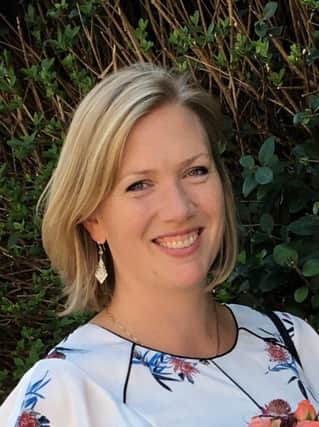Book review: Unspeakable: The Things We Cannot Say, by Harriet Shawcross


Non-fiction is as hybrid as fiction, but recent years have seen an acceleration in terms of prose which deliberately and provocatively blends things, such as the work of Olivia Laing, Robert Macfarlane, Charlotte Runcie, Geoff Dyer and others. As the critic David Shields has said, there is something odd even about the word “non-fiction”. “You don’t have a drawer marked non-socks” was his pithy take on it. More and more books take in memoir, aesthetics, criticism, reportage, biography, science and philosophy. Perhaps that is why the ghastly phrase “creative non-fiction” has developed. (Although I have read my fair share of non-creative non-fiction). Shawcross fits very well into this new not-really-a-genre.
The spine of the book is autobiographical. While at school, Shawcross stopped speaking. This was a form of selective mutism. She could answer questions, albeit laconically and monosyllabically, but would not engage in conversation or initiate it. Her thinking about this period in her life brings to the fore some of the paradoxes of silence. Firstly, it was willed rather than a medical condition. Secondly, it existed in a strange interstice between, on the one hand, “we don’t talk about that” – with her father having lost his job and her grandmother moving into the family home – and on the other, a carving out of space to be alone. It is a sliver of space in the Venn diagram between shame, guilt and privacy. Finally, there is also the natural teenage anxiety about “giving the wrong answer” – something I remember well when being taunted by other boys at school about whether I was Rangers or Celtic. (See the Wittgenstein above: I didn’t even know they were football teams).These are the themes that ricochet throughout the book.
Advertisement
Hide AdAdvertisement
Hide AdWhat follows is a zig-zag of concerns, a real helter-skelter of perspectives. I perhaps have a higher tolerance of this kind of book than some readers, who may find it needlessly quirky, since I have written in this form myself and am profoundly convinced of the truth of Laurence Sterne’s phrase “great wits jump”. So in her foray into silence, Shawcross takes in the poetry of George Oppen (who, I must confess, I had not read) who didn’t write for a quarter of a century; Chad Varah and the founding of the Samaritans (Shawcross herself having been a Samaritan); Eve Ensler’s The Vagina Monologues and what saying “taboo” things might accomplish; Buddhist and Quaker uses of silence in worship; #MeToo; Post-Traumatic Stress Disorder; coming out as bisexual; and the great unsaid: death. As the reader will see, it is a particular kind of choreography to weave together these diverse and sometimes divergent topics. But it works, especially in the sense of “conceit” that the Metaphysical Poets used: finding the similarities in the dissimilarities.
It also looks face on at one of the most problematic aspects of such work: the ethical nature of the project. What moral obligations does Shawcross owe to the real people about whom she is writing, some of whom are family, some of whom are lovers, some of whom are strangers, some of whom are people she meets in a professional capacity? It might seem an irony that an unspeaking teenager went into journalism, but one of the best techniques I was told in terms of interviewing was “zip it”. People fill silences. The writing is, at its best, extremely affecting. Discussing attending a Quaker meeting, Shawcross writes eloquently about “the familiar fluidity of not being able to imagine where the edges of my body are” and the choir-like nature where the congregation is “both creating and curating the stillness of the room”.
It may seem cheeky to comment on what is not, but there were things I kept expecting and not finding, such as St John of the Cross’s comment that “God’s first language is silence” (odd, for One who spoke the universe into being), or John Cage’s notorious 4’33’’, a piece of music with no notes in it (and which also, if you add up the seconds, comes to 273: on the Celsius Scale, -273 degrees is absolute zero. Sly joke or profound koan? Dunno. To paraphrase Wittgenstein, don’t yap about what you don’t know). A comprehensive history of silence, silencing and stilling would be – well, just too noisy.
There are sections on the physiological effects of prolonged silence, which are shuddersome, from visions to vomiting, from symptoms that can resemble psychosis or heart failure. The “quiet place” can be very challenging indeed, and this book very much asserts the sheer force of silence – look, for example, at how Will Self drove a Tory MP into apoplectic rage by just not speaking on a recent TV discussion.
This caring, inquisitive book has one final irony. It does not talk and I read it silently. - Stuart Kelly
Unspeakable: The Things We Cannot Say, by Harriet Shawcross, Canongate, £14.99